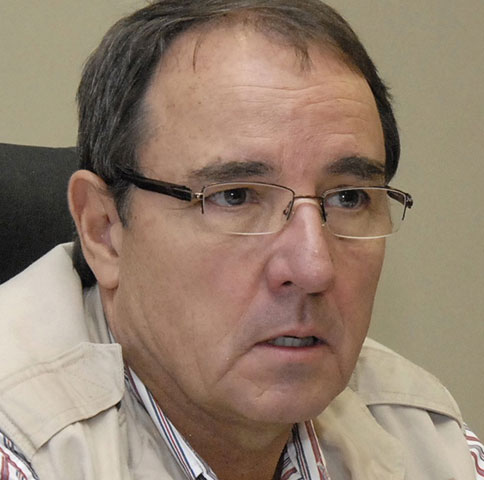
Focus on building an efficient agricultural sector for economic growth – Smit

A strong and an efficient agricultural sector would enable the country to feed its growing population, generate employment and foreign exchange, and provide raw materials for industries and a market for industrial products, local Politician and current Board Chairperson at Trans Namib, Paul Smit said.
Smit said that this will also see to it that the Harambee Prosperity Plan’s objective on ‘improving agricultural output’, is realised. Smit said this during the Bank of Namibia Annual Symposium themed ‘Feeding Namibia: Agricultural Productivity and Industrialisation’ held this week.
He said that increases in agricultural production and the rise in the per-capita income of the rural community, together with industrialisation and urbanisation, lead to an increased demand for industrial products.
“In this way, the agricultural sector helps to promote economic growth by supplying intermediate inputs to the industrial sector,” he added.
Smit who also served as Deputy Minister of the then Ministry of Agriculture, Water and Rural Development, said that the agro-processing industry has been identified as a key candidate for creating jobs and spurring growth owing to its strong linkages with primary agriculture.
However, he noted, the inability to add processing value and penetrate foreign markets act as constraints to agricultural development.
“Growth prospects in the agro-processing industry are evident, as seen from its export figures, especially in the meat and fishing industries. Rapid growth in the manufacturing and export services, therefore, can only occur when the agricultural sector’s productivity improves significantly,” he added.
Smit recommends that focus should be put on key crops to be grown locally as it is important to note that Namibia as a dry country will not be in a position to produce everything it needs locally.
“The extent to which local production is pursued and incentivised should be decided upon with due regard to the likelihood of import supply chain disruptions caused by conflict or adverse climate elsewhere, and to the cost implications for Namibian consumers. These parameters and incentives should not be changed without good reason, given the need for consistent signals to producers, but would have to be revisited on an annual basis,” he stressed.
Furthermore, he hammered on the importance of policies that are applied at all levels of the food production and processing system and their compatibility and drive towards the achievement of the same goal, whether in the form of a tax, subsidy, support or tariff, policy interventions must generate net benefits for society.
“Although a variety of sound policies and legal frameworks have been introduced to support food and nutrition security and growth of the agriculture, forestry and fisheries sectors, they need to be updated to bring them in line with current development realities. Government’s intervention policies within the livestock export sector should cease, to prevent other role-players from benefiting at the expense of the primary producers,” Smit said.
He encouraged the promotion of Public-Private Partnership (PPP) in Agro-processing and Green scheme Projects, adding that government should consider securing more international and domestic resources since public capital is scarce, particularly in times of financial crisis when very low levels of foreign direct investment are expected to enter agricultural infrastructure development.
“To achieve this, government needs new forms of finance and contracting within the PPP framework to pool funding from private and public actors together and to make use of the replicable structured partnering process,” Smit concluded.












































